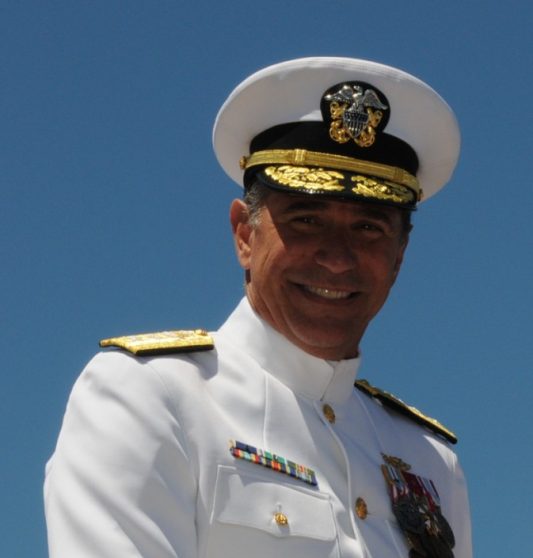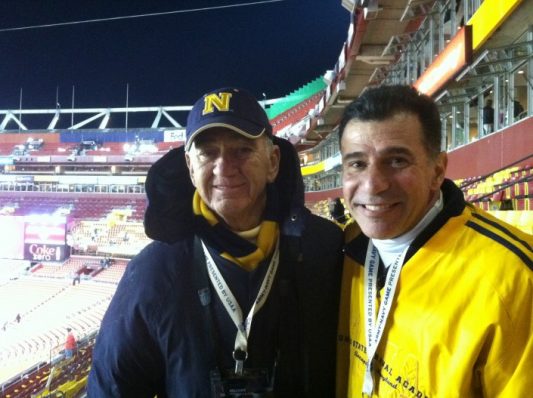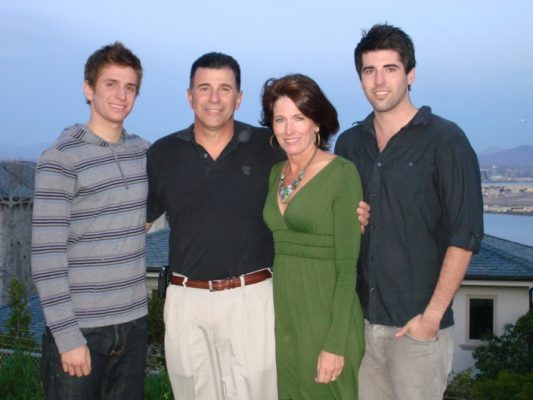Two-star admiral says the key to a successful transition is networking
If there’s one thing 38 years in the Navy can teach you, according to Mark Heinrich, it’s that service members have had many diverse experiences they can draw from when entering the civilian world.

“You’re self-starters and you already know how to show up on time, which is not the case for everyone,” he says. “I remember my first day at the Naval Academy, I was looking around. The guy to my left was an Eagle Scout, and the guy to my right was a valedictorian. There were national merit scholars and all-American athletes, and I looked at myself and said, ‘What am I doing here?’ So I just put my head down and went to work. It’s one of those things the Navy teaches you: they teach you a little bit of humility, they teach you that hard work and discipline pay off, and they teach you to make your bed in the morning and get up on time.”
Those early lessons served Heinrich well in his career with the Navy, where he eventually became a two-star admiral overseeing the entire naval supply chain — and they’re continuing to serve him well in his current role as general manager for strategic sourcing and supply management for the C+E Group at Microsoft, where the supply chain he oversees involves datacenters and servers, and his customers are the datacenter operators.
“I had 25,000 people working for me in the Navy,” Heinrich says. “As a supply officer, your job is to ensure that your customer, which in many cases is the crew of the ship you serve, have what they need to be successful. Ships need to be able to re-arm, refuel, replenish, sometimes rest, but then get back in the fight. And supply officers make that possible. At Microsoft, our job is exactly the same: to obsess over our customers. I don’t have 25,000 people working for me here, but what I have is a group of professionals who are already overachieving, and my goal is just to help them be better.”

Service members are ideally suited to find rewarding careers in the private sector, Heinrich says, their experiences give them an advantage over their peers. The key is knowing how to translate those experiences into language that resonates with hiring managers on resumes and in interviews.
“Don’t assume that because you did a specific skill in the military, you can’t learn something new,” he says. “While private industry has short runways to learn your skills, everyone in the military is capable. What we learn in the Navy is, when a ship moves away from the dock, you are in an environment where you have to solve your own problems. You have to use your intellect, you have to use your judgement and, in some cases, you have to use your intuition. Business is very much like that: your intellect, your judgement, your intuition.”
Though the skills and experience Heinrich gained in the Navy are helping him succeed in his job at Microsoft, he says it’s the people he met, and the network he built, that helped him successfully transition out of the military after such a long and storied career.

“I had a great network of mentors, who never stopped mentoring, even though I was taking my uniform off,” he says. “I was very excited. I knew I had a network, I knew that I was going to spend a lot of time networking and I was going to spend a lot of time learning about what was out there. I also knew that I was going to have a lot of ‘nos.’ I was going to send a lot of resumes out and wasn’t going to hear back. I was going to have to follow up on my own volition; I was going to have to make getting a job my job. So for the last month or two of my time in the Navy, I really made transitioning my full-time job. That helped me be successful in my transition.”
Heinrich says leveraging your network will take you far, but transitioning service members must also start building that network early on.
“The time you need a friend is not the time to make a friend,” he says. “You need to build your network long before transitioning. And the network you’re building is not meeting every CEO on LinkedIn; it’s talking to people about what you want to do when you get out. So I started a long time ago talking to people about my plans. They’d always ask, ‘Oh, what do you want to do?’ I practiced that answer. I practiced, and practiced and practiced, and I said the same thing over and over again. I said, ‘I want to be able to leverage the skills — as a supply chain professional and as a logistics expert — that I’ve learned in the Navy. I want to leverage those skills in the private sector.’”
